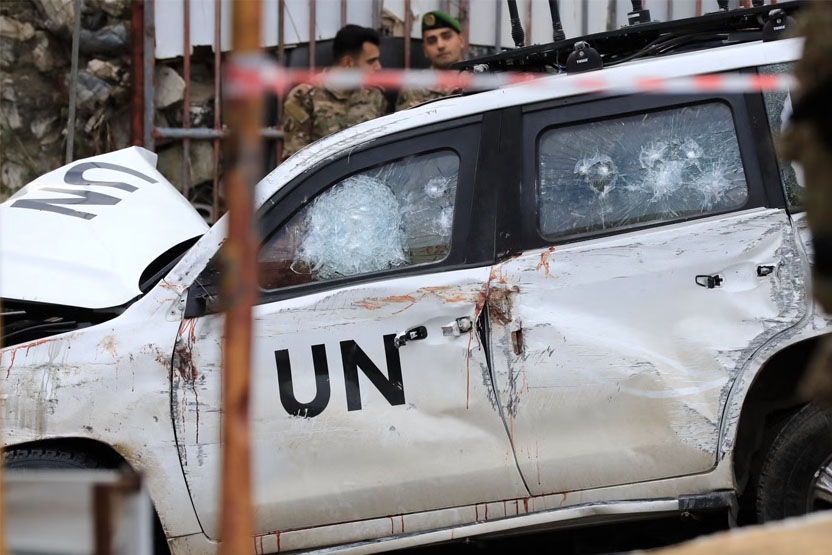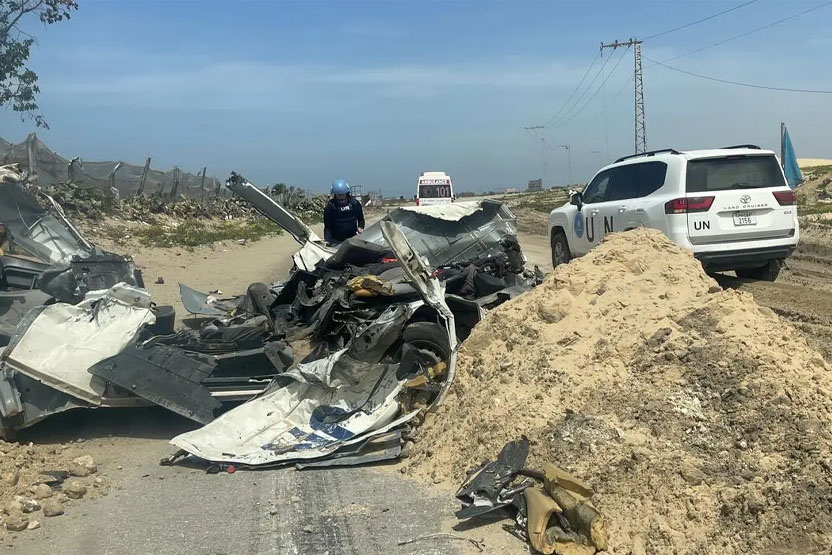violence against aid workers has reached unprecedented levels, threatening not only humanitarian staff but also the lifelines that sustain millions of civilians caught in conflict and disaste

On World Humanitarian Day, the United Nations Office for the Coordination of Humanitarian Affairs (OCHA) issued a sobering warning: violence against aid workers has reached unprecedented levels, threatening not only humanitarian staff but also the lifelines that sustain millions of civilians caught in conflict and disaster zones.
According to OCHA’s latest data, 383 humanitarian workers were killed in 2024 – the highest number ever recorded. An additional 308 were wounded, 125 kidnapped, and 45 detained. The majority were national staff, serving their own communities, who lost their lives either while delivering aid or in their own homes.
UN Under-Secretary-General for Humanitarian Affairs and Emergency Relief Coordinator Tom Fletcher condemned the continuing violence:
“Even one attack against a humanitarian colleague is an attack on all of us and on the people we serve. Attacks on this scale, with zero accountability, are a shameful indictment of international inaction and apathy.”
He urged those with influence to act decisively: protect civilians and humanitarian staff, and hold perpetrators to account.
Gaza and Sudan: Epicentres of Violence
The surge in deaths – a 31 per cent increase compared to 2023 – is largely attributed to ongoing conflicts in Gaza and Sudan. In Gaza alone, 181 aid workers were killed in 2024, while Sudan saw 60 fatalities. A particularly deadly incident occurred in March 2025, when 15 responders – including eight members of the Palestine Red Crescent Society, six from the Palestinian Civil Defense, and one UN staff member – were killed in a single attack while wearing their uniforms. OCHA described it as possibly the deadliest attack on aid workers this year.
A UN staff member examines the remains of a UN vehicle in the aftermath of an attack in which 15 responders were killed in their uniforms in Gaza in March 2025. These included eight from the Palestine Red Crescent Society, six from the Palestinian Civil Defense and one from the UN. This was possibly the deadliest attack on aid workers in 2025. Photo: OCHA
As of mid-August 2025, the violence shows no signs of slowing: 265 humanitarian workers have already been killed in the first eight months of this year, according to provisional data from the Aid Worker Security Database.
A Crisis of Impunity
OCHA stressed that attacks on humanitarian personnel violate international humanitarian law. The UN Security Council resolution 2730, adopted in May 2024, reaffirmed the obligation of parties to conflict to protect aid workers and called for independent investigations. Yet, accountability remains scarce. State actors are cited as the most common perpetrators of these violations.
Humanitarian experts warn that without enforcement mechanisms, such resolutions risk becoming symbolic rather than transformative. The lack of consequences emboldens those who target aid workers, perpetuating cycles of violence.
Remembering the Fallen, Protecting the Present
World Humanitarian Day is also a moment of commemoration. Across the globe, aid workers and supporters are honoring colleagues who paid the ultimate price while serving vulnerable populations. The day also marks the relaunch of the #ActForHumanity campaign, urging the international community and the public to demand stronger protections for humanitarian staff.
“Violence against aid workers is not inevitable. It must end,” Fletcher insisted, echoing the plea of countless humanitarian organizations.
The Stakes
The violence not only devastates families and communities but also undermines relief operations. When aid convoys are attacked, clinics destroyed, or staff killed, it is civilians – already trapped in crisis – who bear the brunt. From Gaza to Sudan, Syria to the Democratic Republic of Congo, millions rely on humanitarian aid for survival. Disrupting this lifeline can have catastrophic consequences.
As this year’s World Humanitarian Day is observed, OCHA and its partners are calling for urgent, tangible action: international investigations, political accountability, and robust measures to guarantee the safety of those who risk their lives to save others.



Comment